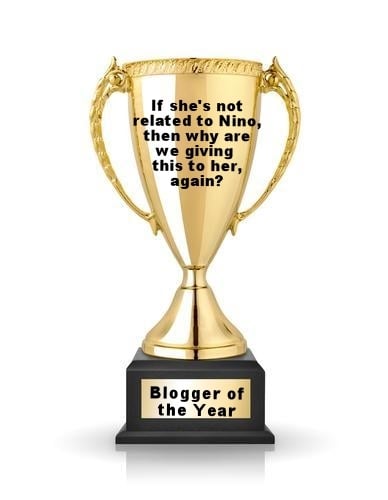Spent all of today in the company of nurses, cardiologists, and so forth with my dear husband, who had mild-but-persistent chest pains over the weekend. They had “mostly” abated by this morning, and he was preparing to travel, but I couldn’t see my way to letting him get on a plane with chest pain “mostly” gone, and insisted that we get things checked out.
Things are less conclusive than we’d like – not a heart attack, thankfully, but whether he’s headed for one is another question. He, of course, is insisting that he’s a he-man and “completely fine with a little indisposition, okay, maybe angina…” I am not over-reacting but I’m not at-ease, either, and more tests are needed later this week. If you could keep us all in your prayers, that we get through this bump in the road without overturning the cart, we’d appreciate it.
This means, of course, that blogging continues lighter-than-normal and emails are going mostly unanswered. For the gent who felt “forgotten” and “ignored,” please know you’re neither, but my attention is necessarily directed elsewhere, just now.
Meanwhile, please bear with me as I repost a piece from January 2008, that touches on the issue of whether we make our ideologies into idols. Worth thinking about these days, no?
ARE WE MAKING IDOLS OF OUR IDEOLOGIES?
“Ideas create idols; only wonder leads to knowing.”
— St. Gregory of Nyssa
The Wall Street Journal has an editorial up entitled McCain’s Apostacies.
Think about that for a minute. His differences with his party are not differences, they’re “apostacies.” He is, for some, a heretic who has departed too sharply away from the dogmas and sacraments of The Church of Conservatism.
And he’s the pro-life guy!
I’ve been thinking for a while that the hyperpartisanship on both sides was beginning to resemble the Protestant/Catholic sectarian troubles in Northern Ireland. Hate and malice are being extended by both sides to those “others” over there. The “other side.”
Nothing else matters but that they don’t believe the same things “we” believe (whoever “we” are, Conservative or Liberal). Because they don’t believe the same things “we” believe, they are bad, undesirable people and we shun them and will not have them in our midst.
It’s downright unAmerican, if you ask me. And the tenacity with which both sides cling to their beliefs makes one wonder if the political extremes are not misplacing their faith – putting it not in God, but in “the party” and “the movement.”
I did something I almost never do, recently, and spent a little time exchanging ideas within the thread of another blog. Within that exchange, someone wrote:
I just don’t see what [George W]Bush has done for the movement or the party.
That stopped me in my tracks. All this time I thought the president – any president – was expected to serve the interests of the whole nation and all its citizenry. Apparently not; apparently the president is supposed to serve “the party” and “the movement” and if he does not do that – he is a poor and despised president.
That “movement or the party” remark recalled the histories of fascism and communism and their ugly progeny – totalitarianism; all of those “isms” began with the notion that “loyalty to the party” trumped everything else – new ideas, tactics, statesmanship, economics, social unrest – whatever the question, loyalty to the party – the growth and sustainment of “the movement” was the answer.
That’s all bad history. It is history we want to remember, but not repeat. But here we are, the mightiest and most democratic nation in the world, and the extremists within both ideologies have deemed fealty to the “ism” – whichever ism it is – to be the defining characteristic of a desirable candidate.
Someone else wrote:
Well here’s the thing – conservatives are conservatives because they believe conservatism is what’s best FOR AMERICA.
That’s quite true and un-objectionable. But of course, liberals are liberals because they believe liberalism is what’s best for America, and centrists are centrists for the same reason.
It just seems to me that within those little ideological spheres which are full of ideas, a president must be permitted to listen to ideas and debate them and perhaps even to choose portions of ideas from each position, left, right and center, in order to formulate policies which are best FOR AMERICA, and which address the concerns of all the country, not just “the party,” and which serve the whole citizenry, not just “the base.” The best recipes call for more than one ingredient. The best policies do, too.
If we are determined to shut out whole blocks of people because their thoughts are not ours, their ideas are not ours, their beliefs are not ours, then we’re doing democracy wrong – we’re turning it into something else. And I don’t think the “something else” is necessarily a good thing.
Thomas More, the patron saint of politicians, was a good and trusted adviser to King Henry VIII, but his faith and conscience took precedence over that fealty. When Rome refused Henry a divorce, Henry broke away and formed the Church of England. More could not go where Henry went, saying at his arrest, “I am the King’s good servant, but God’s first.”
I am by no means comparing President Bush to St. Thomas More, but it does seem to me that part of his problems within his own party stem from a similar attitude: Love him or hate him, he is the party’s good servant, but America’s first. And America’s good servant, but God’s even before that. Or, as I have written elsewhere,
It does not surprise me that he is a Christian man living a creed before he is a President, that he is a President before he is a Conservative. It seems to me precisely the right order of things.
Those priorities seem like good ones to me, and perhaps in a healthy society, they would be appreciated. But we’re not healthy right now – I doubt anyone would truly suggest we are – and in this society, sadly, the precedence of “the parties” and “the movements” over everything else is disconcerting. People who six months ago declared they would “crawl over broken glass” to prevent a particular presidency now declare they’d prefer to see that presidency over the “impure” alternative, and that seems oddly disoriented.
How can an undesirable candidate suddenly become an acceptable, good-faith alternative? I know there is a school of thought that says, “well, that will teach others and they’ll be more loyal to the party, next time.”
But that’s being too clever by half, isn’t it? One of President Bush’s errors was in thinking he could sign a campaign finance reform into law and count on the Supreme Court to find it unconstitutional. The Supreme Court did not meet his expectations.
Signing off on this election while counting on people to “do the right thing” in the next one seems to me equally hazardous and just as likely to disappoint. And it feels a little bit like putting one’s ideology before all else, and trusting in it, alone.
I am no “McCainiac.” At this point I have no idea who I will be voting for in November, particularly since there is ugliness in every campaign. I’m merely offering food for thought.
***
Eloquent Jonah Goldberg:
…this disaster talk leaves me cold. McCain wouldn’t be my first pick. Then again, none of the candidates were really my first pick. But I think the notion that, variously, conservatism, the country or the party are doomed if he’s the nominee or the president is pretty absurd.
[…]
I think both the GOP and the conservative movement could benefit from a slightly more adversarial relationship. George W. Bush moved the party leftward and/or damaged the image of the GOP in many respects precisely because he was given the benefit of the doubt by conservatives who saw him as “one of us.” It’s not obvious to me that having a more transactional relationship with a Republican president would be altogether bad for the country, the party or the conservative movement.
Sister Toldjah has more thoughts.
Palm Tree Pundit has a quote for you.
Jay Stephenson surveys the mood – and confusion – on the right.
Beth minces no words.
As I said in the comments section:
Once upon a time I might have agreed with the statement that the left is all about “feelings and emotions” while the right was about thinking and issues. I’m not entirely sure I would, anymore. Both left and right are doing their share of emoting.
Related: The Nation Needs a Time-Out











